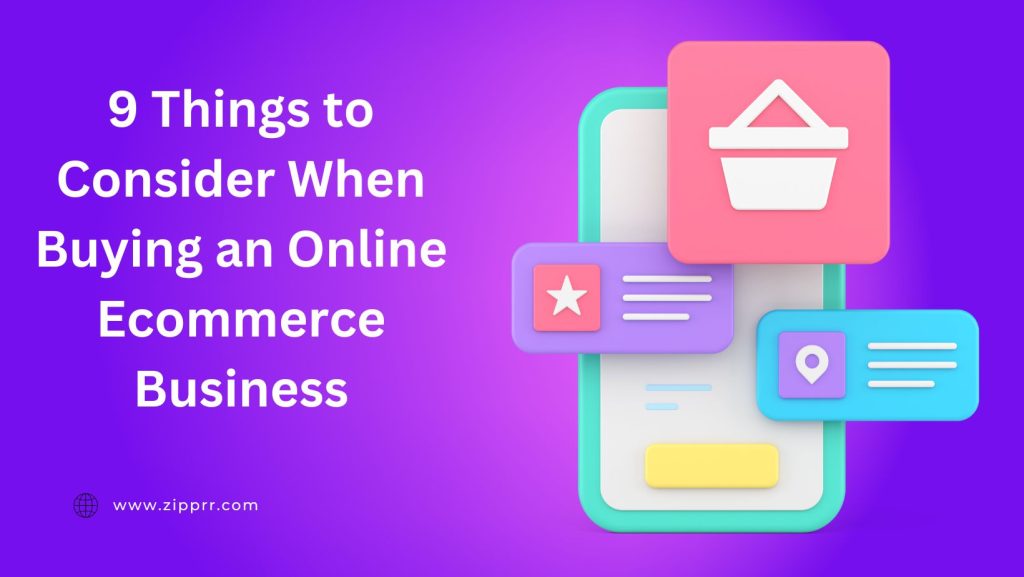Buying an existing online retail business has many factors to consider beyond traditional acquisitions. This guide outlines the top 9 things any prospective buyer must evaluate, such as inventory, finances, traffic sources, suppliers, shipping and more. Understanding these ecommerce-specific elements is key to assessing the full value and potential of such a business.
Table of Contents
- 1. Product Mix and Supplier Relationships
- 2. Inventory Levels and Management
- 3. Traffic Sources and Customer Acquisition
- 4. Shopify/WooCommerce Parameters
- 5. Financials and Key Metrics
- 6. Shipping and Logistics Partners
- 7. Review Returns, Refunds and Chargebacks
- 8. Growth Plans and Market Analysis
- 9. Ownership Transition Support
- Frequently Asked Questions
- In Retrospect

1. Product Mix and Supplier Relationships
The product mix refers to the range and variety of products offered by the business. It is essential to assess the diversity and profitability of the existing product lineup to ensure a sustainable revenue stream. Additionally, examining the supplier relationships is equally important as it directly impacts the availability, quality, and cost of the products offered.
To effectively evaluate the , consider the following:
- 1. Profitability: Analyze the profitability of the different products within the business’s portfolio. Look for products with high-profit margins and consistent demand, as they contribute significantly to the overall financial health of the business.
- 2. Market Trends: Research market trends and identify potential growth areas. Is the current product mix aligned with these trends? Are there opportunities to expand or diversify the range of products offered?
- 3. Supplier Stability: Examine the strength and stability of the existing supplier relationships. Consider the reliability of the suppliers in terms of delivery times, product quality, and their ability to meet growing demand.
By carefully assessing the when evaluating an online ecommerce business, you can gain valuable insights into its potential for long-term success. A robust and profitable product lineup, supplemented by strong supplier partnerships, forms the foundation for sustained growth and customer satisfaction.

2. Inventory Levels and Management
When it comes to buying an online ecommerce business, one crucial aspect that should not be overlooked is the . Proper inventory control is vital to ensure smooth operations and maximize profitability. Here are nine essential factors to consider in this realm:
- Product Variety: Assess the range of products the business offers to determine if it aligns with your goals and target market. Is there a diverse selection that appeals to your customer base?
- Demand Forecasting: Evaluate the business’s ability to accurately predict demand for its products. A reliable forecasting system can help you avoid excess inventory or stockouts, ensuring customer satisfaction.
- Supplier Relationships: Investigate the relationships the business has with its suppliers. Strong partnerships can lead to better pricing, timely deliveries, and more consistent inventory availability.
Inventory Turnover: Examine the rate at which the business sells and replenishes its products. High turnover indicates efficient inventory management, reducing the risk of obsolete stock and tying up unnecessary capital.
Technology and Tools: Assess the systems and software the business utilizes for inventory management. Look for platforms that offer real-time tracking, automation, and integration with other aspects of the ecommerce operation.
Warehousing and Storage: Consider the physical space required to store the inventory. The business should have adequate warehousing facilities or arrangements to accommodate its products while minimizing costs.

3. Traffic Sources and Customer Acquisition
Understanding the strategies employed by an online ecommerce business is crucial when considering a potential purchase. Here are some important factors to keep in mind:
- Organic Search: Pay attention to the website’s organic search traffic. A high percentage suggests that the business is ranking well on search engines and has a solid SEO strategy in place. Conversely, low organic search traffic may indicate an opportunity for improvement or potential risk.
- Paid Advertising: Assess the effectiveness of the business’s paid advertising campaigns. Look for consistent and positive returns on investment (ROI) through platforms such as Google Ads or social media ads. Examine the ad spend, conversion rates, and customer acquisition costs to gauge the business’s advertising strengths.
- Social Media: Consider the impact of social media on the business’s traffic and customer acquisition. Evaluate the brand’s presence and engagement levels on popular platforms like Facebook, Instagram, or Twitter. A strong social media presence can result in increased brand awareness and customer loyalty.
These traffic sources provide insights into how the online ecommerce business attracts and retains customers. Analyzing these areas will help determine the business’s marketing strengths, potential growth opportunities, and any areas of concern regarding customer acquisition.

4. Shopify/WooCommerce Parameters
When it comes to running an online ecommerce business, choosing the right platform can make all the difference. Two popular options that many entrepreneurs consider are Shopify and WooCommerce. Both platforms offer a wide range of features and benefits, but it’s important to carefully consider the parameters that are most important to you before making a decision.
1. Cost: One of the primary considerations when choosing a platform is the cost involved. Shopify offers subscription-based pricing plans that start at $29 per month, while WooCommerce is a free plugin for WordPress. However, keep in mind that additional expenses, such as transaction fees and paid plugins, can add up. Determine your budget and evaluate the overall cost implications of each platform.
2. Customizability: Every business has unique branding and design requirements. If you value complete control over the look and feel of your online store, WooCommerce might be the better choice, as it allows for deep customization through the use of themes and plugins. On the other hand, Shopify offers a user-friendly interface and a wide selection of pre-designed templates, making it a great option for those who prefer simplicity and ease of use.
3. Scalability: As your business grows, it’s crucial to have a platform that can scale alongside it. Shopify, with its fully hosted solution, takes care of server maintenance, security, and performance optimization, allowing you to focus on growing your business. WooCommerce, being a WordPress plugin, requires you to manage various aspects such as hosting, security, and performance optimization yourself. Consider your long-term goals and assess how each platform can accommodate your future needs.

5. Financials and Key Metrics
When purchasing an online ecommerce business, evaluating its is essential. Understanding the financial health of the business will help you make an informed decision and determine its growth potential. Here are some key considerations to keep in mind:
1. Revenue Streams: Begin by examining the different revenue streams generated by the business. Is it primarily through product sales, advertising, or subscription services? Evaluate the diversity and stability of these streams to assess the business’s overall financial stability.
2. Profit Margin: Delve into the profit margins generated by the business. Determine the percentage of revenue that translates into profit after deducting expenses. A healthy profit margin indicates strong financial performance and a higher likelihood of sustained profitability.
3. Customer Acquisition Cost (CAC): Investigate the cost of acquiring new customers. Ascertain the marketing and advertising expenses required to attract and retain customers. A low CAC ensures that the business is efficiently acquiring customers, contributing to its bottom line.
Moreover, take note of key metrics to gauge the health and potential of the ecommerce business:
– Conversion Rate: Analyze the percentage of website visitors who make a purchase. A higher conversion rate implies effective marketing strategies, user-friendly website design, and optimized product offerings.
– Average Order Value (AOV): Determine the average amount customers spend per transaction. A higher AOV indicates a greater potential for increased revenue by maximizing each customer’s value.
– Customer Lifetime Value (CLV): Evaluate the long-term value of each customer by calculating the predicted revenue they will generate throughout their relationship with the business. A higher CLV demonstrates customer loyalty and the potential for recurring revenue.
By thoroughly examining the of an online ecommerce business, you can gain valuable insights into its profitability, growth potential, and overall financial stability. Remember, these considerations will play a crucial role in your decision-making process and ensure a successful investment.
6. Shipping and Logistics Partners
When purchasing an online ecommerce business, it is crucial to carefully evaluate the involved. A solid shipping strategy can make or break your business, impacting customer satisfaction, delivery times, and ultimately, your bottom line. Here are some key considerations to keep in mind:
- Reliability: Look for partners with a proven track record of reliability. Seamless coordination between your ecommerce platform, fulfillment center, and shipping provider is essential to ensure timely and accurate deliveries. Check customer reviews and testimonies to gauge the partner’s reliability.
- International Reach: If you aim to expand your business globally, partnering with a shipping company that has extensive international delivery capabilities is fundamental. The ability to reach customers worldwide efficiently and cost-effectively will give your ecommerce business a significant advantage.
- Cost and Pricing Structures: Assess the pricing structures of various shipping partners to find the one that aligns with your budget and business model. Consider factors such as shipping rates, volume discounts, packaging costs, and any additional fees that might impact your profit margins.
Customs Expertise: If you plan to sell across borders, understanding the complexities of customs regulations and duties is crucial. Seek out shipping partners with in-depth knowledge and experience to navigate the international customs landscape smoothly. They can provide guidance on required documentation and help avoid potential hiccups that may delay shipments and upset customers.
In conclusion, selecting the right for your online ecommerce business is an integral part of achieving success. By prioritizing reliability, international reach, cost structures, and customs expertise, you can establish a solid foundation for smooth operations, satisfied customers, and increased profitability. Remember, your choice of shipping partner isn’t just about getting your products to customers—it’s about delivering exceptional experiences that build lasting relationships.

7. Review Returns, Refunds and Chargebacks
When purchasing an online ecommerce business, it’s crucial to carefully review and understand the returns, refunds, and chargeback policies in place. These policies can greatly impact your bottom line and customer satisfaction. Here are nine essential factors to consider before finalizing your acquisition:
1. Terms and Conditions: Familiarize yourself with the business’s terms and conditions regarding returns and refunds. Ensure they align with industry standards and provide sufficient protection for both you and your customers.
2. Return Period: Determine the length of the return period offered by the business. A shorter return period might discourage customers, while an excessively long one could increase the risk of fraudulent returns. Finding the right balance is crucial.
- 3. Customer Support: Evaluate the existing customer support infrastructure. A robust support system can efficiently handle customer inquiries and reduce the likelihood of chargebacks or refund requests.
- 4. Return Authorization: Understand the process and requirements for obtaining return authorization. Clear and straightforward procedures will make it easier for customers to navigate the returns process.
- 5. Refund Methods: Explore the available refund methods. Consider if they align with your customers’ preferences and the current market expectations.
When engaging in discussions about acquiring an online ecommerce business, don’t overlook the crucial aspect of reviewing returns, refunds, and chargebacks. Understanding the existing policies, support infrastructure, and customer expectations will help ensure a smooth transition. By taking these factors into account, you’ll be well-equipped to handle customer concerns and maintain a thriving ecommerce venture.

8. Growth Plans and Market Analysis
When considering the purchase of an online ecommerce business, it’s crucial to thoroughly examine its growth plans and conduct a comprehensive market analysis. By delving into these aspects, you can gain valuable insights into the potential of the business and make an informed decision. Here are nine key factors to consider:
1. Market trends and demand: Evaluate the current market trends and assess the demand for the products or services offered by the business. Understanding the market climate will help determine the potential for growth and sustainability.
2. Target audience: Analyze the demographics, preferences, and behaviors of the target audience to determine if they align with your goals or if adjustments need to be made. This insight will enable you to tailor your strategies and marketing efforts effectively.
3. Competitor analysis: Conduct a thorough analysis of the competition to identify their strengths, weaknesses, and market share. This will help you gain a competitive edge by pinpointing opportunities for differentiation and discovering untapped market segments.

9. Ownership Transition Support
This stage can greatly impact the success and future growth of the venture. To ensure a smooth transition, here are some key aspects you must consider:
1. Understand the Business Model: Familiarize yourself with the online ecommerce business’s unique structure and how it operates. Take note of its target audience, marketing strategies, and revenue streams. This understanding will help you make informed decisions during the transition phase.
2. Evaluate the Existing Brand: Analyze the reputation and positioning of the business in its industry. Assess the brand’s strengths, weaknesses, and the potential for expansion. Acquiring a well-established brand can offer a competitive advantage and facilitate a more seamless transition for customers.
3. Assess the Financials: Conduct a thorough examination of the business’s financial records, including profit and loss statements, cash flow statements, and tax returns. Verify the accuracy of these documents to assess the profitability and financial health of the ecommerce business. This step is crucial for making informed decisions and setting realistic goals for future growth.
By considering these vital aspects, you can ensure a successful ownership transition for the online ecommerce business you are acquiring. This attention to detail will lay a solid foundation for your business’s continuity and growth. Stay tuned for more essential tips on buying an online ecommerce business!
Frequently Asked Questions
Q: Looking to venture into the world of online businesses? Here are nine crucial factors to consider when buying an ecommerce business. Are you ready to dive in?
Q: What should I prioritize when assessing an ecommerce business to purchase?
A: Firstly, ensure the business aligns with your interests and passions, ensuring long-term motivation. Secondly, assess its scalability, growth potential, and profitability. Remember, a successful online business requires dedication and an understanding of the market.
Q: How important is the business’s financial performance before making a purchase?
A: It’s essential to thoroughly analyze the business’s financial records, including its revenue, expenses, and profit margins. Evaluating the financials will enable you to determine the business’s stability and potential for future growth.
Q: How crucial is the existing customer base when evaluating an ecommerce business to buy?
A: A loyal customer base is invaluable in the ecommerce world. Assessing the customer base, its size, engagement, and satisfaction levels is crucial. Remember, retaining existing customers is often easier and more cost-effective than acquiring new ones.
Q: Should I consider the products or services offered by the ecommerce business?
A: Absolutely! Evaluate the product or service quality, uniqueness, and market demand. Additionally, consider the supply chain management, inventory levels, and any necessary licensing or permits required to sell these products.
Q: Why is it vital to analyze the marketing strategies employed by the ecommerce business?
A: The success of an online business heavily relies on effective marketing techniques. Analyzing the current marketing strategies, such as SEO, social media presence, and paid advertising, will help you gauge the business’s visibility, brand reputation, and reaching the target market.
Q: How important is the technology and infrastructure behind the ecommerce business?
A: The technology and infrastructure supporting the business can significantly impact its operations and scalability. Assess the website’s design, user experience, mobile compatibility, and back-end systems, ensuring they are up to date and capable of handling future growth.
Q: What role does the competition play when buying an ecommerce business?
A: Competition is inevitable in any business. Analyze the competitive landscape, evaluating the market saturation, competitive advantage, and potential barriers to entry. Understanding the competition will enable you to position the business effectively within the market.
Q: What legal and contractual aspects should I be mindful of before making a purchase?
A: Before sealing the deal, pay close attention to any contractual agreements, licenses, or intellectual property rights associated with the business. Ensure all legal aspects are in order, such as permits, copyrights, trademarks, and comply with any applicable regulations or licensing requirements.
Q: How crucial are the transition and training processes when buying an ecommerce business?
A: Smoothly transitioning into a new business can be challenging. Ensure the seller offers comprehensive training and support to understand the business operations fully. Additionally, establish a clear transition plan to minimize disruptions and maximize success.
Q: Ready to embark on your ecommerce buying journey? Consider these nine factors to make an informed decision and pave the way for a fruitful, fulfilling online business endeavor!
In Retrospect
And there you have it, nine essential factors to keep in mind when venturing into the world of online ecommerce business acquisitions. As the digital marketplace continues to evolve at a rapid pace, the potential for growth and success is boundless. However, taking the leap into buying an online business requires careful consideration in order to ensure a fruitful future.
Remember, it all begins with thorough research and due diligence. Don’t be swayed by flashy numbers or promising statistics; dig deep into the business’s history, financials, and customer base. Analyze every aspect meticulously and uncover any hidden skeletons that may jeopardize your investment.
Seek out niche opportunities that align with your passions. Engaging with a business that resonates with your personal interests not only makes the journey more enjoyable but also increases your chance of success. Authenticity and passion are your allies in the competitive world of online commerce.
Financial projections are crucial, but so is your gut feeling. Numbers may indicate potential profitability, but instinct and intuition can be just as valuable in making the final decision. Combine the two to create a harmonious balance that leads you toward the right opportunity.
Remember, an ecommerce business is only as good as its digital infrastructure. Assess the current state of the technological framework, including the website, hosting, and payment systems. Ensuring a smooth customer experience is paramount for achieving long-term success.
Furthermore, consider the scalability of the business. Are there growth opportunities? Is the market saturated, or will your efforts have room to flourish? Evaluate the potential for expansion, innovation, and diversification, and be prepared to adapt to new market trends.
Balancing risk and reward is an art; carefully evaluate potential risks by conducting a comprehensive SWOT analysis. Identify the threats and challenges the business may face, and devise strategies to mitigate them. Don’t let blind optimism cloud your judgment; be realistic and develop contingency plans for any unforeseen circumstances.
Remember that building strong relationships is fundamental to the success of any business. Analyze the existing vendor relationships, supplier networks, and customer satisfaction. Nurture these connections and identify opportunities for growth through collaboration and strategic partnerships.
Never underestimate the power of branding and marketing. Evaluate the current marketing strategies employed by the business and identify potential areas of improvement. Invest in building a solid brand presence that appeals to your target audience, and craft compelling marketing campaigns that communicate your unique selling proposition.
Last but not least, surround yourself with a team of experts who can provide guidance and support throughout your new endeavor. Seek out professionals who specialize in ecommerce acquisitions, legal matters, and financial advice. Their wisdom and experience can be invaluable assets as you navigate the intricacies of acquiring an online business.
As you embark on this new journey of acquiring an online ecommerce business, keep these nine considerations in mind. Stay diligent, be passionate, and always remain open to learning and adapting. With the right mindset and careful planning, your investment has the potential to thrive in the ever-evolving realm of online commerce.







